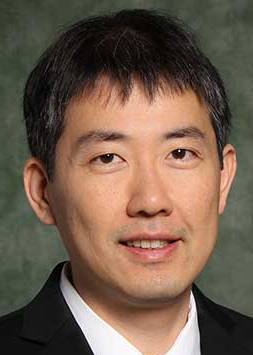With a wide array of state-of-the-art equipment, fundamental and applied research in the area of transport phenomena (i.e., fluid flow, heat and mass transfer). The core houses equipment for fluid flow metrology, flow visualization, fluid property characterization and multiphase flow analysis. Research specializations include interfacial phenomena, micro- and nano- flows, complex fluids and small-scale thermal analysis.
Location
ES B100
Equipment
Cellular and Microbial Culturing Suite
This suite of equipment provides the thermofluids group with the capability to culture human cells and microorganisms. The class II biosafety cabinet and refrigerated centrifuge provides a means to manipulate and condition cultured cells and microorganisms in controlled, sterile environments. The humidity-controlled incubator and orbital shaker incubator provide suitable environments for cell growth. The -80°C deep freezer and the cryopreservation freezer, on the other hand, provide proper long-term storage of collected cell strains under investigations. The suite will be particularly helpful as the thermofluids group increases research efforts into cancer and microorganisms in the micro- and nanofluidic applications.
Infrared Spectrometer
The Perkin Elmer Spectrum 100R Fourier Transform Infrared Spectrometer identifies types of chemical bonds of the phases that constitute synthesized materials, semiconductors and novel materials (liquid or solid). The infrared (IR) spectrum of a sample is recorded by passing a beam of IR light through the sample. Examination of the transmitted or reflected light reveals how much energy is absorbed at each wavelength. From a transmittance or absorbance spectrum produced, one can perform analysis of these absorption characteristics that reveals details about the molecular structure of the sample. This system also has accessories such as Attenuated Total Reflectance (ATR), MCT detector, and various angles of spec reflectance accessories.
Micro/Nano/Biofluidics Inspection Suite
This suite of equipment precisely prepares fluidic, colloidal, molecular and cellular samples for high quality experimental investigations. A microcentrifuge, a temperature-controlled ultrasonic bath and a microfluidic mixer manipulate micro/nanoscale suspension and solutions through concentrating, diluting and mixing. In addition, special gas and humidity-controlled environment can be maintained inside a chemical glove box accessorized with a vacuum pump. An upright microscope equipped with a CCD camera is used to visually inspect and quantify fabricated micro/nanofluidic devices and the prepared samples on top of a vibration-isolation optical table.
Plasma Etcher
The Plasma surface treatment system is based on the PlasmaEtch Model RIE200 system which includes two gas connections (manipulated by an integrated Mass Flow Controller), a rectangular stainless steel chamber with hinged door, and a 13.56 MHz RF generator with reactive ions etching (RIE) configuration. The system is customized for use with corrosive gases.The low pressure plasma surface treatment system cleans, activates, etches and polymerizes surfaces of substrates.
For general cleaning applications, ion bombardment cleans surfaces physically and chemically by vaporizing surface contaminants. Plastic surfaces are activated by forming reactive radicals which lead to good adhesion between the activated surface and any subsequently coated layer. By using a reactive process gas, the generated plasma is able to etch and structure the treated surfaces. By introducing a single and/or multiple monomer gases into the vacuum chamber, the resulting plasma-induced polymerization is able to realize deposition of hydrophobic, hydrophilic and other functional diffusion barrier layers on treated sample surfaces.
Tube Furnace
This high temperature tube furnace enables high temperature processes up to 1800 C.
X-ray Diffractometer
The x-ray diffractometer (XRD) enables general purpose and routine material structure characterization using a position sensitive detector that offers high quality diffraction measurements at very high speeds.
Relevant research topics include nanotechnology, materials, functional organic materials, solar cell, biosensors and biomedical, MEMS, microfluidic devices and batteries.
Contact

Paul R. Chiarot
Professor; Department Chair

Pong-Yu (Peter) Huang
Associate Professor; Director

